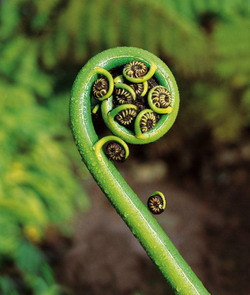Today the Health Research Council of New Zealand (HRC) announced $1.5 million in funding to emerging Māori health researchers as part of its 2014 Career Development Awards programme.
One of the major awards, the HRC’s Eru Pomare Postdoctoral Fellowship, has gone to Dr Jason Gurney (Ngāpuhi) from the University of Otago, Wellington. Dr Gurney will use his funding to research why Māori men have significantly higher rates of testicular cancer than non-Māori men.
In 2012/2013, Dr Gurney led a research team that discovered ethnic inequalities in the rates of undescended testis, one of the well-known risk factors for testicular cancer – the most common cancer to affect young men between 15 and 40 years of age. His fellowship will build on this work to better understand what’s driving the higher rates of both undescended testis and testicular cancer in Māori men. It will include the first pilot case-control study on testicular cancer in New Zealand.
Clinical psychiatrist Dr Hinemoa Elder (Te Aupōuri, Ngāti Kuri, Te Rarawa, Ngāpuhi) of Te Whare Wānanga o Awanuiārangi has also received the prestigious HRC Eru Pomare Postdoctoral Fellowship to improve the rehabilitation of young Māori (under 24 years old) who have sustained a traumatic brain injury (TBI).
TBI in children and adolescents is a serious health problem both in New Zealand and abroad. Recent figures showed the rates of TBI were 1200 per 100,000 persons for Māori compared with 975 per 100,000 persons for New Zealand Europeans.
Dr Elder is one of only a very small number of child and adult psychiatrists with experience working with Māori whānau in the area of TBI. For this fellowship she will use Te Ao Māori (the Māori world view) to develop and test a quantitative questionnaire that will measure the cultural rehabilitation needs of young Māori with a TBI. Dr Elder will also use a new approach she’s developed, Te Waka Oranga, to bring together professional and whānau knowledge in the context of TBI rehabilitation.
Speech-language therapist Dr Karen McLellan (Ngaiterangi, Whakatōhea) recently completed her PhD at The University of Auckland on the experiences of Māori with aphasia – a language disorder following a stroke. She will now use her HRC Eru Pomare Postdoctoral Fellowship to design and create an intervention programme for speech-language therapists working with Māori who have stroke-related communication disorders.
In addition to these three awards, the HRC has granted another 16 Māori Health Research Career Development Awards, including PhD scholarships, three Master’s scholarships, eight summer studentships and three training awards.
“These awards are a chance for some of New Zealand’s talented emerging Māori health researchers to partner with other academics, clinicians and community stakeholders to improve the health of Māori and non-Māori alike,” says HRC Chief Executive Dr Robin Olds.
See below for a list of all the 2014 HRC Career Development Award recipients (Māori health research). You can also check out our research repository.
Māori Health Research Career Development Awards
Eru Pomare Postdoctoral Fellowships
Dr Karen McLellan, The University of Auckland
A kaupapa Māori intervention for stroke-related communication disorders
42 months, $371,514
Dr Jason Gurney, University of Otago, Wellington
Testicular cancer in Māori men: what is driving the disparity?
36 months, $358,982
Dr Hinemoa Elder, Te Whare Wānanga o Awanuiārangi
Te Waka Oranga; bringing the recovery destination to whānau
48 months, $460,000
Māori Health Research PhD Scholarships
Dr Jade Tamatea, The University of Auckland
Te whakangungu rākau: prevalence, severity, outcome of thrytoxicosis in Māori
24 months, $74,004
Ms Dianne Wepa, AUT University
Māori whānau and their engagement with healthcare services
24 months, $72,687
Māori Health Research Masters Scholarships
Mr Stephen York, AUT University
What are the mortality outcomes following diabetes-related lower extremity amputation
24 months, $19,357
Miss Paris Pidduck, University of Otago, Dunedin
What do tamariki have to say about hauora? A qualitative study using photography
34 months, $19,300
Mr David Patterson, The University of Auckland
Urban design, mental health and Māori
22 months, $16,204
Māori Health Research Summer Studentships
Miss Alisa Cunningham, Massey University
Healthy housing index and Māori health
4 months, $5,000
Miss Janell Dymus, The University of Auckland
Exploring Māori public health public leadership through a community lens
4 months, $5,000
Ms Leanda Harris, University of Otago, Dunedin
Identifying barriers and enablers to physical activity among Māori tertiary students
4 months, $5,000
Mr Brendon McIntosh, University of Otago, Dunedin
Impact of increased prescription charges on Māori
4 months, $5,000
Mr Jesse Moriarty, Massey University
Whakairo and the intergenerational transmission of positive health practices for whānau
4 months, $5,000
Mr Michael O’Keeffe, AUT University
What matters most to Māori? Therapeutic relationships in neurorehabilitation
4 months, $5,000
Mrs Cynthia Strickland, AUT University
Footwear and foot orthoses adherence for Māori with inflammatory joint disease
4 months, $5,000
Mr Steve Waqanivavalagi, The University of Auckland
An intact approach to architectural characterisation using confocal microscopy
4 months, $5,000
Māori Health Rangahau Hauora Training Award
Ms Brenda Gordon, The University of Auckland
Exploring barriers and facilitators to midwives delivery of cessation support
6 months. $12,000
Mrs Marlana Maru, University of Waikato
Impact of sexual violence on Māori
6 months, $12,000
Mrs Tammy Tauroa, University of Waikato
Qualitative research training within ‘Tiakina Te Pa Harakeke: Māori childrearing within a context of whānau ora’ research project
6 months, $12,000
